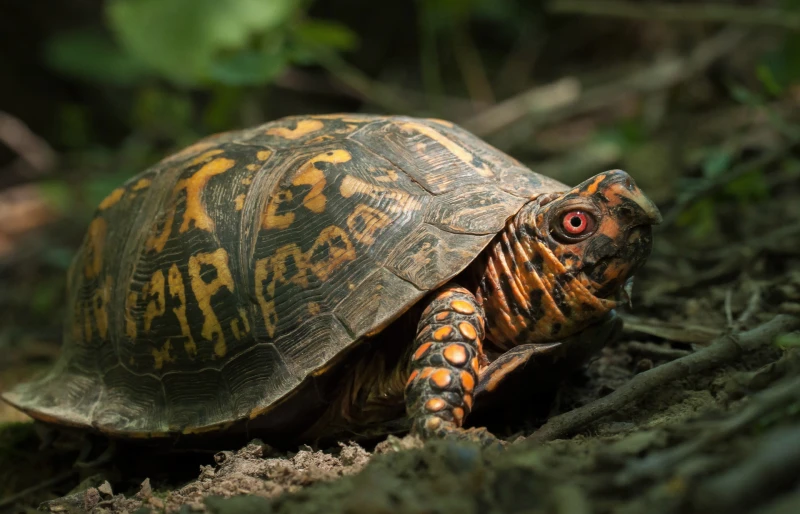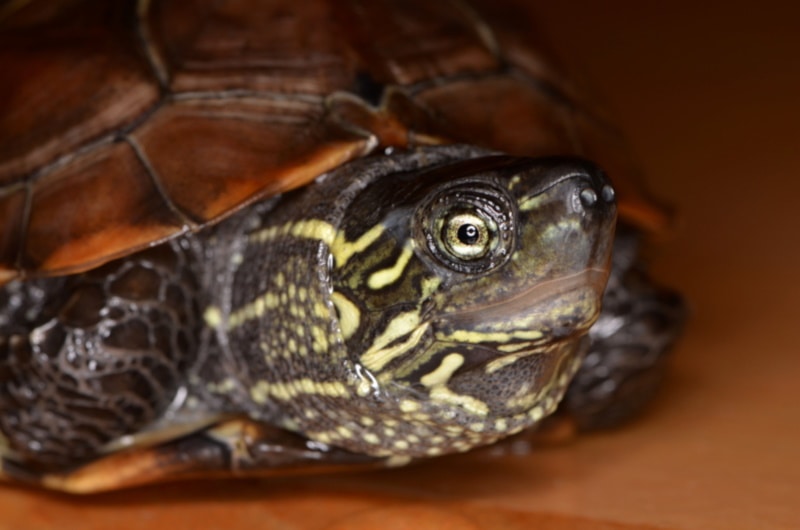Can Turtles Eat Peaches? Vet-Reviewed Nutrition Facts & FAQ

Updated on

Peaches can be a good addition to a well-balanced diet for captive turtle species like Box Turtles or Yellow-Bellied Sliders, but they need to be fed sparingly.
It also depends on the species, as the term “turtle” is all-encompassing and includes hundreds of aquatic and semi-aquatic turtles, tortoises, and terrapins, many of which are pets.
What Turtle Species Can Eat Peaches?
Turtles exist across the world’s continents, oceans, and islands in various environments and climates. They’re grouped into terrestrial, fully aquatic, and semi-aquatic species, all of which subsist on the diet that’s available to them in the wild.
Most turtle species are opportunistic omnivores, but their diets are still highly diverse. Some terrestrial species are strict herbivores, while some aquatic species are mostly carnivorous. Their diets may adapt to their age, the season, or differences between populations.
When you keep a captive turtle species, it’s important to get as close as possible to its natural diet in the wild. For tropical and subtropical turtle species, that may include fruit in limited quantities—including peaches.

Can Turtles Eat Peaches?
If you have a tropical or subtropical species that lives in fruit-rich rainforests in the wild, it can have some fruit as an occasional supplement to the diet. Fruit should be limited, however, as it’s less nutritious for a turtle than vegetable matter.
Ideally, peaches and other fruit should not make up more than 5-10% of your turtle’s diet. Though fruits have a lot of vitamins and minerals, most nutrients a turtle needs should come from a diet of leafy vegetables and if appropriate, small amounts of flowers, insects, and worms.
Feeding fruit too often risks throwing off your turtle’s diet and causing health problems. In addition, peaches have a lot of sugar, which makes it ferment faster than other sugar sources and can affect the turtle’s gut flora. In severe cases, this can even cause liver abscesses.
Turtles can also be picky eaters. If your turtle decides it likes peaches or other fruits, it may choose to eat them over healthier vegetables, flowers, or animal protein sources. If it’s fed sparingly, it will stay a rare treat and won’t impact the rest of your turtle’s healthy diet.

How to Feed Peaches to Your Turtle
Peaches can be offered cooked or raw, but it’s better raw. They should be without skin and with no added flavors, sauces, or spices. You should be careful to remove the pit, as it can damage your turtle’s beak. Peach pits also have cyanide compounds that could be ingested by your turtle if it breaks the pit into small pieces.
As mentioned, offer peaches only occasionally in small quantities with your turtle’s other food. Start slowly to see how the peaches affect your turtle. If you see any signs of digestive upset, avoid feeding peaches in the future.
Conclusion
Some turtles eat fruit in the wild as part of their natural diet. If you have one of those turtle species, peaches, and other fruits can be added in extremely small quantities on occasion to add variety and provide additional nutrients. If you have any concerns about your turtle’s diet, be sure to consult your vet.
Featured Image Credit: Piqsels













